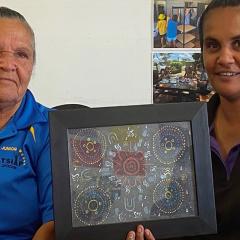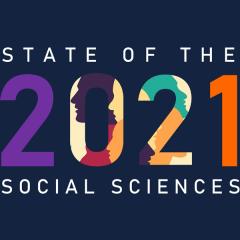Authors: Karen Thorpe and Victoria Sullivan
Available international data indicates that men represent only 3% of the early education and care (ECEC) workforce in Australia, and up to 9% of the workforce in developed economies. Whether this low participation rate represents a problem for ECEC quality remains a subject of public debate with concerns about the “risk”, “appropriateness” or “necessity” of men caring for and educating young children pitched against arguments proposing unique benefits for children’s learning and social experiences.
More recently, pressures to increase labour supply and diversity in the ECEC workforce has directed attention to increasing participation of men in the ECEC sector. So what do those working in childcare settings alongside male educators say about male educators? Are they welcomed? Are they restricted in their participation? What is their contribution to children and families? These questions formed the basis of an Australian Research Council funded Linkage project, Identifying effective strategies to grow and sustain a professional early years workforce, that we undertook with industry partners Goodstart Early Learning, Creche and Kindergarten Association and the Queensland Department of Education and Training.
Key themes that emerged from accounts of men’s presence in the female domain of childcare arose from the fact that men are the minority gender in the ECEC workforce, giving rise to perceptions that male educators are special, while also potentially being viewed with caution or discrimination. The women working in a centre with a male educator were proud to have a man in their centre, describing their centre as "fortunate" and "lucky" and described the male educator as "our guy" and "one of us". Two male educators interviewed for this study also described feeling proud of their work: one felt integral to the centre team, and the other described pride and sense of belonging in the context of his immediate teaching team.
Previous studies of female educators suggest that there is covert concern about men’s motives for working with young children; yet our study found that these concerns didn’t exist in centres where there was direct experience with a male educator. Men were not excluded from any work task (such as nappy changing), and no concerns were expressed by female educators about motives. The male educators reported that some parents were initially cautious but gained confidence over time. As one of the male educators indicated: "you definitely get people that will look at you sideways and are like, 'Oh! Okay'. But then you get the other fathers like, 'Oh wow, that's awesome. There's usually just the women'."
Previous research has debated whether men make a unique contribution to children’s learning and development. For example, the literature on fatherhood suggests that there are qualitatively distinct styles of “male” interaction, such as “rough and tumble play”, that serve to enhance children’s development. In this study, reports from both male and female educators confirmed that the men added a richness to the children's learning environment and workplace, including enhancing parental engagement, particularly for fathers. Furthermore, educators in our study suggest that by simply by being different from the “normal” carer, men contribute to a changed dynamic that allows children to have a more diverse learning experience.
This sense of "otherness" and common perceptions of ECEC as simple care work may contribute to low levels of male participation in the ECEC workforce worldwide; however, this situation could change with greater awareness of the professional challenges inherent in this work, and with greater exposure by staff and parents to male educators. As a minority group in this workforce, male educators present an “outsider” perspective on what the community assumes is simple care work, and showcase the challenging aspects of ECEC in having to constantly engage and connect with the children. Our data shows that direct engagement with male educators by centre colleagues and parents aligns with positive opinions about males' contributions to children, parents, and the ECEC environment.



